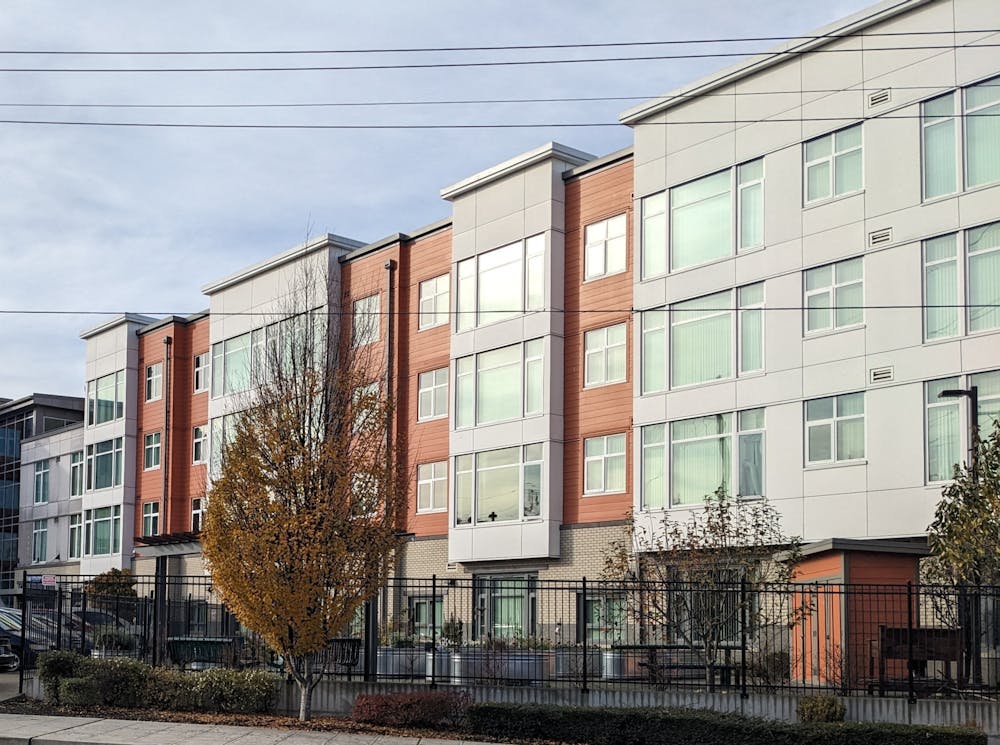The Whatcom City Council approved increased spending on affordable housing projects through the Economic Development Investment program on Oct. 24, 2023.
The EDI program takes .09% of Washington’s sales tax to fund public facilities, said Jed Holmes, the Whatcom community outreach facilitator.
The fund is for facilities that support economic development, including roads, sewer, water and other public facilities.
“The fund was not explicitly focused on affordable housing, but both the county and state have been looking to change that, as there is increasing recognition that economic development is impossible without affordable housing,” Holmes said.
Private and non-profit sector construction companies can apply and use the funds to build housing to meet the community’s needs.
“They're going to get to develop a project and say, ‘We want to build X, Y and Z that includes an affordable housing component,’” Holmes said. “So why don't we go to the county and see if they can't give us something that will help us along.”
Affordable housing is based on a location's Area Median Income. Affordable housing projects can serve people who make up 30 to 80% of Whatcom County's AMI.

Whatcom County’s AMI is $70,011 as of 2021, according to the U.S. Census. AMI has increased steadily since 2000. However, the cost of living has increased alongside it.
The average rent in Bellingham has increased by 8% since 2022, according to Zumper, a property listing site.
The funds will provide support based on the projection of affordable units in a development project, Holmes said.
The increase in funding availability allows work to begin for new projects. However, affordable housing projects take time to complete.
Zoning, loan application, concept development and construction must be completed before housing is available, said Anne Fritzel, the housing planning manager at the Washington Department of Commerce.
“It's probably a three- or four-year process from idea to ‘Here's the key to your new home,’” Fritzel said.
Many builders went out of business during the 2008 recession, leading to Washington not building to meet increased housing demands, Fritzel said.
“We have a population that's growing faster than the housing stock," Fritzel said. "That's what bid up the price of housing."
The population in Washington increased by 14.6% while housing units increased by 13.5%, according to Washington's Office of Financial Management.
Bellingham residents have struggled to find a suitable place to live, said Rebecca Quirke, founder of Tenants Revolt an organization advocating for tenants' rights.
“The artists are leaving the community in droves, the people that are creators, the people who are working in social justice and helping offer support in the city," Quirke said. "They're leaving, because they can't afford to stay."
While more affordable housing is needed, more can be done by the Bellingham City Council to keep current housing options affordable, Quirke said.
While only one piece of the puzzle, the increased funds from the EDI program create opportunities to meet Whatcom residents' housing needs.
“This just adds a tool to the toolbox,” Holmes said. “This is one of those things that will help us get [housing projects] off the ground.”
Jenna Millikan (she/her) is a city news reporter for The Front this quarter. She is a third-year student majoring in journalism with a minor in political science. When not reporting, she enjoys cheesy movies, reading and drinking too much coffee.
You can reach her @jennamillikan.thefront@gmail.com






